- Home
- Jasinda Wilder
The Long Way Home Page 2
The Long Way Home Read online
Page 2
God, I love her.
I just took a candid snapshot of her with my phone, and I’m staring at it, memorizing her features. It’s not like I don’t have a trillion photos of her, and it’s not like I couldn’t sketch her from memory, if I could draw for crap, that is. But for some reason, this feels different.
She’s medium height, five-six in her bare feet, which are size six and adorably tiny. She has black hair cut in a smart chin-length bob, and stunning, vivid blue eyes. She’s svelte, delicate. She has a perfect body, in my opinion. Hour glass figure, a hip-to-waist-to-bust ratio most other women would kill for. The few extra pounds she’s kept on after having Henry actually adds some softness and curve to her body, if you were to ask me, but she doesn’t want to hear that. She has a prominent Jewish nose, which she hates and which I love, a feature courtesy of her Orthodox paternal grandparents. Her fierce azure eyes are compliments of a dominant gene on her mother’s side, or so she says. She has a penchant for cursing which I find at once funny and amusing and erotic. The way she says “fuck” when she’s pissed off is so completely different from the way she says it when she’s turned on and encouraging me in bed. She’s wildly intelligent, insightful, a talented wordsmith…and she’s cuttingly funny. As in, her tongue is by far her greatest weapon, followed closely by her pen—metaphorical and literal.
I’m ruminating on Ava because it’s easier than thinking about Henry.
They’re talking about a brain tumor. Scans show a mass in the very center of his brain, diffused in such a way as to have made it hard to detect and impossible to operate on.
Radiation and chemotherapy will extend his life by a matter of months, if that, and those months will be fraught with horror and agony and sickness.
Ava refuses to accept what the doctors are saying. Insists there has to be another way. A cure. An experimental treatment. Something.
They insist there isn’t.
Prepare for the worst, they have told us.
Worse than what we’ve already gone through?
Their suggestion: medicate him out of the pain, and allow the cancer to run its course.
Dope him up and let him die, they mean.
But Ava…god, Ava. My sweet, fierce Ava. She’s crumbling. Trying to stay strong. Trying to keep her chin up. Trying to be cheerful for Henry. But then he falls asleep again, and the false cheer falls away, replaced by a vacant, haunted stare.
And I can think of no words to soothe her.
Because I’m crumbling just the same. Except I cannot summon false cheer. To keep the sobs at bay is all I can manage, and that requires a total shutdown of my emotive capacity. I am a blank wall, a breathing, moving statue of stone. It’s not fair to Ava, who needs me to be strong, but I have no strength.
Ava knew there was something wrong with Henry all along, so this isn’t as much of a shock to her.
To me, it is an earthquake of a magnitude no Richter scale can measure.
I have to put some kind of food inside me. I have to sleep.
But how can I think of such mundanity as food and sleep when my son is dying?
6
[From Ava’s blog: Confessions of Working Mommy; March 17, 2015]
I haven’t blogged in weeks, and for that, dear readers, I apologize. I probably won’t be on again for some time to come, and I’m only putting this up because I feel I owe my dedicated readers a bit of an explanation.
Henry has a brain tumor.
Inoperable.
Incurable.
Fatal.
We are near the end, now. Another week or two, at most, they’re telling us.
So…yeah.
I’ve already decided that I won’t be changing the name of my blog; he’ll be gone, but I’ll still be a mommy. Just…a mommy without a child.
I don’t have anything else, right now. I won’t be replying to comments or emails any time soon, but I’ll say thank you in advance now for your prayers, thoughts, well-wishes, and eventual sympathies. Thank you.
When I am capable of writing again, when I’m capable of my trademark humor and sarcasm, I’ll return to blogging. Maybe.
But for now,
For now…
I don’t know.
I guess for now I have to figure out how to survive my son’s death.
Blunt, but that’s what it is. I’m not one to shy away from the truth, and by now y’all know I’m also not shy about putting the truth up on my blog, whether everyone is comfortable with it or likes it or not.
This is bullshit, and I would like to take this opportunity to extend a pair of raised middle fingers to God, Mother Nature, the universe, whoever and/or whatever is in charge of this kind of thing.
FUCK YOU for taking my child.
Because in the process, you’re taking Chris, and myself, and everything I am and everything I have away from me. And it’s not fair.
So fuck you for that.
Okay, the rant is over. Again, I’ll be radio silent for the foreseeable future, and I can’t guarantee you I’ll ever be as funny as I used to be.
7
[April 5, 2015]
Christian scoops up a handful of rich brown soil, steps to the edge of the grave, and lets the dirt trickle over the edge of his palm. The soil makes an echoing, thudding sound on the small casket of polished mahogany.
Ava stands a few feet behind him, a wad of Kleenex clutched in one fist, which is trembling and pressed against her lips. Tears trickle down her cheeks. Ava’s older sister Delta and her son Alex stand with Ava’s parents, nearby. Christian’s mother, his only living family, stands close to Ava’s family. A few friends and some of Ava’s extended family are also in attendance. The minister has said his words, and waits nearby, looking appropriately somber, his hands folded over his well-worn leather Bible.
Christian glances back at Ava, stretches out his hand for her. She refuses with a soft shake of her head.
“Come on, Ava. One last goodbye.”
“I can’t.” Her voice is a whisper, lost in a hot Florida breeze. “I can’t. I already said goodbye to him. I can’t do it again.”
Ava turns and walks away, the thin black spikes of her heels sinking into the thick green turf. Her back is straight, and a pair of oversized black Brighton sunglasses cover her face, hiding her tears. Except those that drip from her chin, that is. She reaches their car, a glossy white Range Rover, climbs into the passenger seat, and waits with the door open to allow the heat built up inside the vehicle to vent out.
Christian spends another moment at the grave, staring down at the tiny wooden box. “Goodbye, Henry. I love you.” His voice breaks on the final whispered word, and then he strides slowly across the grass, his once-broad shoulders now thin and stooped, as if he is bent to breaking under some invisible, enormous weight.
Ava watches him. He’s as handsome as ever, only…now he’s thin and haggard. Once, he was powerfully built and bursting with vitality, radiating charisma and charm, his chiseled features exuding life and joy and vibrant intelligence. His hair is greasy, unwashed, and shows strands of gray, where before there were only glossy, wavy, sandy-brown locks usually left artfully messy. His eyes, though. Those show his sorrow the most clearly. Blue-gray, the color of polished steel, or the sea in the distance on a cloudy day. They once shone brightly, warmly, they once welcomed you to approach him and invited you to sit down and talk to him, and for Ava, they once begged her to kiss him, to interrupt his writing, to come up with something quippy and sarcastic just to see those eyes of his blaze with humor. Now, they’re dead and flat. More steel than sea. Sorrowful rather than sanguine. Hard, rather than inviting. Sunken, dark circles, bags. Lines, deeply carved around them and between them. Anger lines and sorrow lines, rather than laugh lines.
Ava is as much changed as Christian, and she knows it.
Her heart is cracking, shattering, but for the first time in her life she can find no way of expressing any of it. She has no words. She was voted “most talkative” in hi
gh school, but now…what is there to say?
Christian climbs into the Rover, starts it with a push of the button. They pull away, and leave the cemetery. The radio is off. Her hands are folded on her lap, fingers twisting and tangling and tightening and releasing compulsively. Christian drives with his right hand at twelve o’clock on the steering wheel, the fingers of his left hand propped at his temple, pressing hard.
It’s a thirty-minute drive from the cemetery to their condo on the beach north of Ft. Lauderdale; those thirty minutes pass in complete silence.
And when they arrive home, Ava trudges listlessly to their bedroom, leaving one of her shoes in the den and the other in the hallway, discarding her purse at the foot of the bed. She climbs into bed, on the right side, under the covers, fully clothed, staring at a small framed photo on her bedside table.
In that photograph, Henry is in cradled in her arms, a bright, happy, innocent grin on his little face, lighting up his eyes, which are so much like his father’s. In that photograph, Ava is just as happy, the smile on her face so wide and so bright she is utterly transformed. She doesn’t recognize herself, in that photograph. It doesn’t match the woman she sees in the mirror.
Once through the door, Christian does three things in a specific order, with practiced familiarity: first, he sets his keys on the center of the island, along with his phone and wallet; second, he flips open a cabinet over the refrigerator and grabs a bottle of Johnny Walker Black Label; third, he goes into his office, closes the door, and sits behind the desk with his scotch. He takes a long pull directly from the bottle, and stares at a photograph on the left side of the desk: it is a selfie, snapped early one morning on his phone. Ava is asleep on her side, Henry cradled carefully in her arms, nuzzled to her bare breast, his chubby little fingers curled against her pale skin. They both share the same peaceful half-smile, mother and child. The selfie features half of Christian’s face, the right side of the photograph slicing directly down the center of his face, and his smile is one of pride and happiness and joy at the sight of his sleepy little family.
His laptop, a thin silver MacBook Air, remains closed in the middle of his desk. On the top of it, just below the Apple logo, is a yellow Post-it Note, in his handwriting: last 20k words due 4/7.
The date is April 5, 2015, and he has never missed a deadline, not once in his life, academically or professionally.
Even if he opened his laptop, he knew there would be no words waiting to flow through his fingertips.
When his father died, Christian wrote. He channeled the rage and confusion and relief into a marathon eighteen-hour writing session, in which he produced twenty thousand words of the most poetic and powerful prose of his entire life.
When his beloved dog died, he wrote.
When he and Ava broke up their senior year of college, he wrote.
And he wrote even more when they got back together, and only stopped to spend forty-eight hours making up with her. He’d then made omelets and toast and had gone back to writing.
This time?
There was nothing.
Silence.
And that, in some ways, was the most terrifying thing of all.
For a writer, that mental silence which signifies a damming up of the creative flow is death by torture—excruciating, slow, and terrifying.
Christian takes another slug of the Johnny Walker, a long glugging drag on the bottle, and then slams it down with a growling hiss as the whisky burns down his throat.
He coughs, and then twists the cap back on.
A sudden, fierce need seizes him, and he gives it rein. He stands up suddenly, leaving the chair spinning as he moves around the desk, out of the office, and up the stairs. He pauses in the doorway of their room, staring at the slight bump under the duvet that is Ava. She must know he’s there, but gives no indication. The blanket doesn’t rise or fall visibly, and fear blasts through him, spurring him to lurch over to her side of the bed and crouch beside it, peering at her—she’s alive, she hasn’t suddenly and inexplicably died. She’s just…there. Barely. Her eyes are open, staring at the photograph. Tears trickle now and then down her cheek, into her eye, onto the pillow. She doesn’t wipe them away, doesn’t sniffle.
Christian stands up. Rips off his tie. Tosses the suit coat aside. Kicks his shoes away. Sheds his dress shirt and the undershirt with its faint sweat stains at the underarms. Steps out of his trousers and underwear. Slides into the bed behind Ava. He clings to her, pressing himself up against her.
She doesn’t move.
“Ava.” His voice is a murmur, a low, rough, ragged plea. “Look at me.”
She doesn’t respond. If he hadn’t seen her blink a tear away, if he couldn’t feel the warmth of her skin and the subtle expansion of her torso as he clings to her, he would think her dead.
“Ava. Please. Talk to me.” His palm clutches at her belly, his nose buries between her shoulder blades. He heaves a shuddering breath. “Please.”
Silence.
Christian remains behind her, clinging to her. Breathing her scent. Begging her—silently now—to respond, to turn to him, literally and metaphorically—for comfort.
But there is only silence.
8
[From Christian’s journal; May 3, 2015]
Ava is completely unresponsive. She leaves the bed to use the bathroom and drink a glass of water now and then, but that’s it. I’ve brought her meals three times a day for over a month, and she hasn’t touched any of them. She is wasting away before my eyes. I can do nothing. I tried to physically sit her up and somewhat force her to eat, and she flat out punched me. She didn’t say a word, didn’t curse or scream, just struck me across the face, and then when I released her out of sheer shock, she resumed her place in the bed, curled up on her left side facing the photograph of her and Henry.
I’ve spoken to our family physician, Dr. Lucas, and he says a healthy adult—even one still with a “normal” body mass index like Ava—can go months without food without significant or lasting damage. As long as she’s drinking water regularly, she won’t die of starvation any time soon.
So medically, nutritionally, there’s nothing to worry about. She’ll lose some weight, but that’s about it.
Mentally, emotionally? Dr. Lucas said everyone deals with grief in their own way, and this is hers. I should be there, I should remind her that I love her, continue to offer her food, continue my attempts to reach her.
And so I do.
I bring her sandwiches and soup and salads, and I set them on a tray on the bed behind her, and I sit near her and beg with her to eat. To respond to me. To speak, at least. She hasn’t spoken a word in weeks, and I beg her to speak to me three times every single day.
I’m beginning to feel desperate. Undone. I too am grieving. I want to climb in bed behind her and stay there with her and just not ever wake up.
My body won’t let me. I feel a physical desperation to move. A panic if I remain still for too long. And I cannot sleep, because worry for Ava consumes me, overwhelming all thoughts and needs.
I watch her breathe, just to know that she’s still alive. I still fear that one day I’ll bring her a meal and she’ll be staring into space as she always is, but she won’t be breathing, her skin will be cold, her limbs stiff, and her lips blue.
Panic is a tangible thing. It’s in my heart, crawls on my skin like lice, scurries through the dark corners of my mind like roaches fleeing a beam of light. It causes my legs to writhe out of my control, sends my feet to carry me away at the oddest hours of the night.
I find myself walking my neighborhood alone at 3am, naked but for a pair of gym shorts, barefoot, shivering, struggling for breath even though I’m barely walking.
I’m drinking too much. It’s barely noon as I write this, and I’m fighting the urge to grab the bottle of whisky. I’m losing the fight, too. I’m afraid I will succumb, and become the worst kind of Hemingway—all the booze, none of the prodigious talent.
What do
I do? How am I to cope? How am I to grieve? My wife is…gone, for all intents and purposes. All but dead. I cannot reach her. And I am…crumbling. I don’t know a better word for this.
How long can I go on like this? I’m trying to be strong. I’m trying to be what she needs.
I’m trying.
I fear I’m going to fail, and soon.
9
[From Christian’s journal; June 10, 2015]
Two months have passed, and Ava has finally begun something like normal life once more. She took a shower. She ate a very small meal—a few pieces of sliced deli turkey, a few slices of Havarti cheese, some jalapeño-stuffed olives, and a mug of black tea.
She was always a svelte woman, but now she is…worrisomely thin. Her ribs show, as do the bones in her wrists and forearms. Her cheeks are sunken. But she is upright, moving, and eating.
She still won’t speak, however.
I sat at the kitchen table with her and watched her eat, tried to engage her in conversation, but she completely ignored me.
I haven’t written a word in months. I fear I might never again.
I went into our bedroom to strip the bed so I could wash the bed sheets, and when I came back, Ava was gone. She’d taken her Mercedes and left.
I know where she went: to Henry’s grave. So I set the sheets to washing and went after her. I found her lying on the thick green grass over his grave.
God, that was difficult, seeing that headstone:
* * *
Henry Christopher Michael St. Pierre
Beloved son, gone too soon.
June 24, 2014—April 3, 2015
* * *

 Badd Ass
Badd Ass Alpha
Alpha After Forever
After Forever Harris
Harris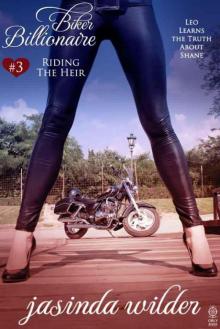 Riding the Heir
Riding the Heir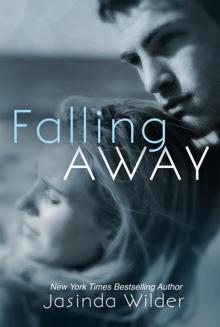 Falling Away
Falling Away Badd Mojo
Badd Mojo Big Badd Wolf
Big Badd Wolf Falling Under
Falling Under Good Girl Gone Badd
Good Girl Gone Badd Stripped
Stripped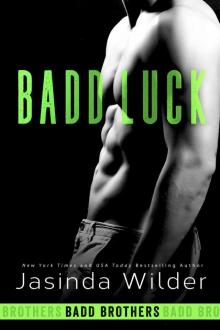 Badd Luck
Badd Luck Exposed
Exposed Big Girls Do It Better
Big Girls Do It Better Beta
Beta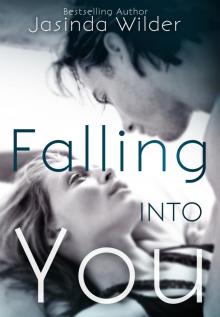 Falling into You
Falling into You Omega
Omega La Vita Sexy
La Vita Sexy Thresh
Thresh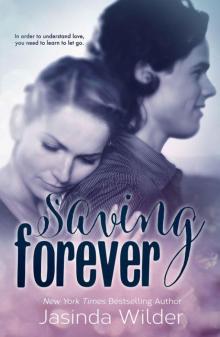 Saving Forever
Saving Forever Big Girls Do It Wetter
Big Girls Do It Wetter Rock Stars Do It Dirty
Rock Stars Do It Dirty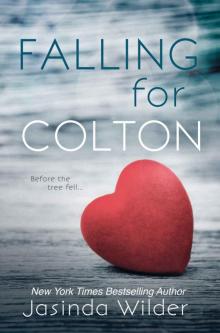 Falling for Colton
Falling for Colton Big Girls Do It on Christmas
Big Girls Do It on Christmas Badd Boy
Badd Boy Falling into Us
Falling into Us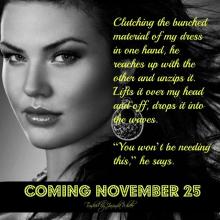 Trashed
Trashed Wounded
Wounded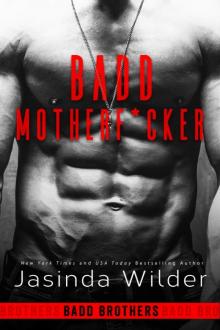 Badd Motherf*cker
Badd Motherf*cker Unbroken
Unbroken Badd to the Bone
Badd to the Bone Rock Stars Do It Harder
Rock Stars Do It Harder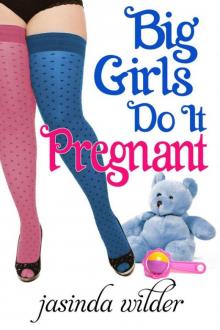 Big Girls Do It Pregnant
Big Girls Do It Pregnant Yours
Yours The Mile High Club
The Mile High Club Madame X
Madame X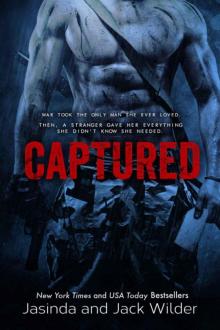 Captured
Captured Unbound
Unbound A Real Goode Time
A Real Goode Time A Wild Ride
A Wild Ride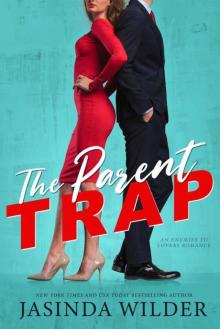 The Parent Trap
The Parent Trap Forever & Always
Forever & Always Goode To Be Bad
Goode To Be Bad Married in Michigan
Married in Michigan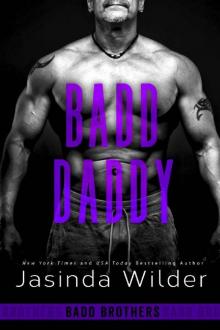 Badd Daddy (The Badd Brothers Book 12)
Badd Daddy (The Badd Brothers Book 12) Nailed
Nailed Goode Vibrations
Goode Vibrations Big Girls Do It on Top
Big Girls Do It on Top Not So Goode
Not So Goode Pregnant in Pennyslvania
Pregnant in Pennyslvania Rock Stars Do It Forever
Rock Stars Do It Forever Cowboy in Colorado (Fifty States of Love)
Cowboy in Colorado (Fifty States of Love) Lear: Alpha One Security: Book 5
Lear: Alpha One Security: Book 5 A Sexy Journey
A Sexy Journey For A Goode Time Call...
For A Goode Time Call... The Naughty Boxset
The Naughty Boxset Lear
Lear Sexy Surrender
Sexy Surrender Pregnant in Pennsylvania
Pregnant in Pennsylvania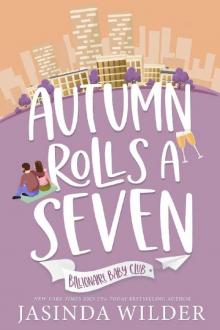 Autumn Rolls a Seven (Billionaire Baby Club Book 2)
Autumn Rolls a Seven (Billionaire Baby Club Book 2) Laurel's Bright Idea (Billionaire Baby Club Book 3)
Laurel's Bright Idea (Billionaire Baby Club Book 3)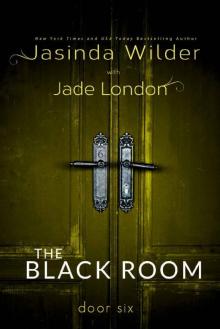 The Black Room: Door Six
The Black Room: Door Six The Long Way Home
The Long Way Home Jack and Djinn
Jack and Djinn The Nice Boxset
The Nice Boxset The Black Room: The Deleted Door
The Black Room: The Deleted Door Wish Upon A Star
Wish Upon A Star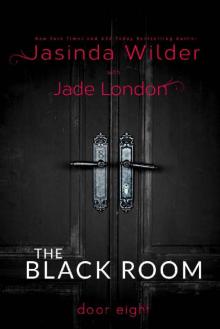 The Black Room: Door Eight
The Black Room: Door Eight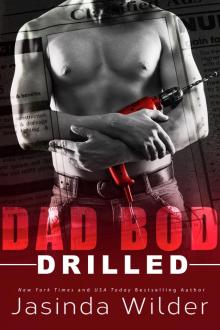 Drilled
Drilled Big Girls Do It Wilder
Big Girls Do It Wilder Djinn and Tonic
Djinn and Tonic Biker Billionaire #2: The Mile High Club
Biker Billionaire #2: The Mile High Club Badd Ass (Badd Brothers Book 2)
Badd Ass (Badd Brothers Book 2) The Black Room: Door One
The Black Room: Door One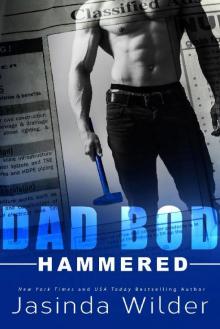 Hammered
Hammered The Black Room: Door Two
The Black Room: Door Two Delilah's Diary #1: A Sexy Journey
Delilah's Diary #1: A Sexy Journey Delilah's Diary #2: La Vita Sexy
Delilah's Diary #2: La Vita Sexy Badd Medicine
Badd Medicine Caught in the Surf
Caught in the Surf Puck: Alpha One Security Book 4
Puck: Alpha One Security Book 4 The Preacher's Son: Unleashed
The Preacher's Son: Unleashed Biker Billionaire Boxed Set
Biker Billionaire Boxed Set Forever & Always: The Ever Trilogy (Book 1)
Forever & Always: The Ever Trilogy (Book 1) Exiled (A Madame X Novel)
Exiled (A Madame X Novel) Big Love Abroad (Big Girls Do It Book 11)
Big Love Abroad (Big Girls Do It Book 11) Badd Kitty
Badd Kitty Yours: A Standalone Contemporary Romance
Yours: A Standalone Contemporary Romance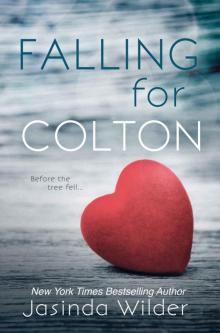 Falling for Colton (Falling #5)
Falling for Colton (Falling #5) The Preacher's Son #2: Unleashed
The Preacher's Son #2: Unleashed There's No Place Like Home (The One Series Book 3)
There's No Place Like Home (The One Series Book 3) Trashed (Stripped #2)
Trashed (Stripped #2) Thresh: Alpha One Security: Book 2
Thresh: Alpha One Security: Book 2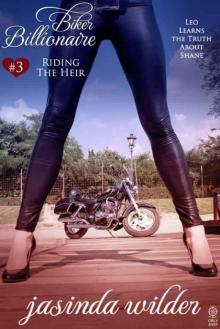 Biker Billionaire #3: Riding the Heir
Biker Billionaire #3: Riding the Heir Duke: Alpha One Security: Book 3
Duke: Alpha One Security: Book 3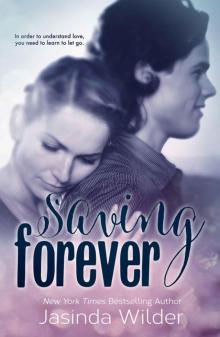 Saving Forever (The Ever Trilogy: Book 3)
Saving Forever (The Ever Trilogy: Book 3) The Preacher's Son #1: Unbound
The Preacher's Son #1: Unbound Badd Business
Badd Business Big Girls Do It Boxed Set
Big Girls Do It Boxed Set The Preacher's Son #3: Unbroken (Erotic Romance)
The Preacher's Son #3: Unbroken (Erotic Romance) The Black Room: Door Four
The Black Room: Door Four There's No Place Like Home
There's No Place Like Home